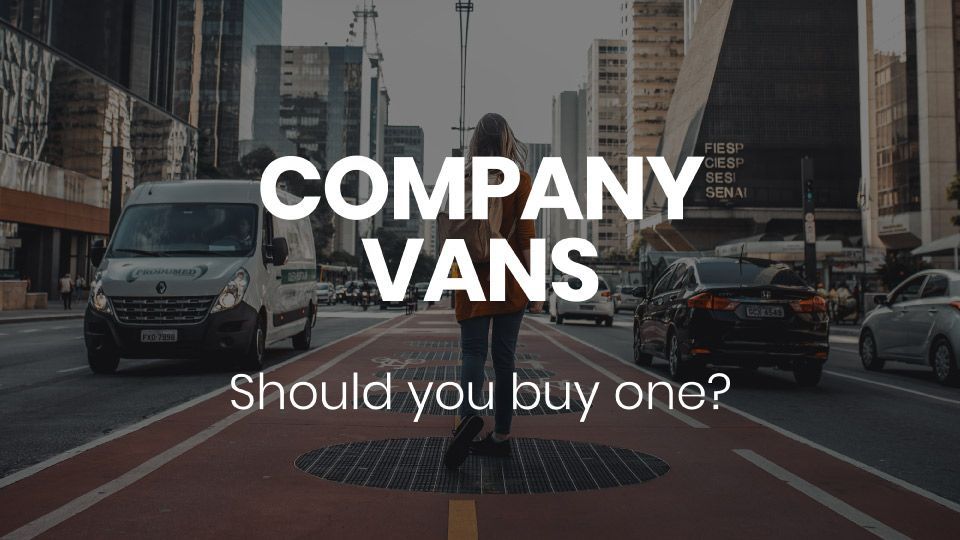Purchasing a Van through a Limited Company

Your Limited Company is able to purchase a van as an allowable company asset. Ideally there would be a reasonable justification for your company to purchase the van in the first place. For example you need to transport equipment that's necessary for providing your company’s usual services.
Why purchase a van through a Limited Company?
There are a few tax advantages that go along with buying a van through your Limited Company. An obvious one is reducing your company’s corporation tax liability but that's not the only reason. There’s also the benefit of having a vehicle that your company owns which you can access to carry out services.
Contractors and freelancers will find it easier to justify to HMRC that the van is exclusively for business use. With company cars on the other hand, HMRC basically has the standpoint that the car is for both personal and business use until proven otherwise.
This doesn’t mean vans can't be considered a benefit in kind for tax purposes. If the van has ‘dual purpose’ (both personal and business travel) then there will be a flat rate benefit in kind charge of £3,350 in the 2018/19 tax year. Essentially £3,350 is added to your total income which needs to be taxed each year the benefit or van is made available to you.
The flat charge is much lower than a company car benefit in kind and the calculation is straightforward. For this reason, company vans can seem more appealing if there is a benefit in kind charge. However they will eventually cost you more than any corporation tax savings received so it's best to avoid this scenario.
Remember if you only have ‘insignificant private use’ of the van, there won’t be a benefit in kind charge. The best example is dropping off a parcel at the post office on the way to a job. These journeys don’t happen very often and they don’t really affect the distance you would have travelled otherwise.
Once you’ve decided that the van is a necessary purchase for the company, there are various ways to account for it depending on the method of purchase or lease. We’ll discuss the implications of hire purchase agreements, leases, and buying a used or new van outright.
Before we get into that, we need to ensure the actual van is in fact classified as a ‘commercial vehicle’.
What is a van?
HMRC’s criteria to classify vans and light commercial vehicles (LCVs) are generally vague, but there are a few tools we can use to decide what is treated as a van for tax purposes.
For starters, HMRC’s definition of a van or LCV is:
• A vehicle primarily constructed for the conveyance of goods or burden
• A gross vehicle weight - fully laden - not exceeding 3,500kg
A more detailed list is available for combination vans and car derived vans here: https://www.gov.uk/government/publications/hm-revenue-and-customs-car-derived-vans-and-combi-vans
The list should give you a better idea of what HMRC would accept as a van. We recommend getting a full assessment of the vehicle you’re planning to buy as the topic can be rather complex.
Tax Treatment for Company Vans
All the purchase and leasing options are viable to obtain a van for your limited company, it's simply up to you to decide what works best in your circumstance. There are different ways to account for each purchase or lease type.
Outright purchases, new or used, allow you to list the van as a capital asset to your company. If you sell the van later on, there will be profit or loss made on the sale. This in turn affects your company's profit and tax figures. Usually you can receive full corporation tax relief on the purchase up-front by using the Annual Investment Allowance (AIA) so adjustments will need to be made when the van is sold.
This will also happen if your company finances the van purchase since it will own the vehicle at the end. The only difference is that your company won't have to pay for the van up-front, but rather with installments. Corporation Tax relief can be claimed on the total cost up-front with the Annual Investment Allowance, however the interest charges will be accounted for separately.
Hire purchase agreements are usually treated this way too, allowing your company to get tax relief up-front. It’s best to get the contract checked by an accountant (like us) to make sure the tax treatment is done correctly. Both financing and hire purchase agreements can be very appealing options as they allow your company to keep a steady cash flow.
Leasing the van without guaranteed ownership at the end of the contract usually means that it will not be considered an asset to your company. This is simply because your company never owns the van. Instead it's more like a rental. In this case you’d just add the monthly expense to your company accounts and get corporation tax relief normally just like any other expense. Operating leases would normally fall into this category.
Reclaiming VAT on Company Vans
It is possible to reclaim the VAT paid on a van purchase from HMRC, along with any running costs such as repairs and fuel. How you reclaim VAT will also vary depending on the type of agreement.
As required with any VAT reclaim, you must ensure that your company receives a proper VAT receipt from the company or person that is arranging your van purchase or lease. The receipt must have your company's name on it to qualify.
There will also be further implications if you sell the van later on. Reclaiming VAT on a van purchase means your company will also need to charge VAT on its sale. We recommend speaking with a professional to ensure that the correct VAT is reclaimed and the accounts are properly updated with any van sale.
Thinking about buying a van through your limited company?
